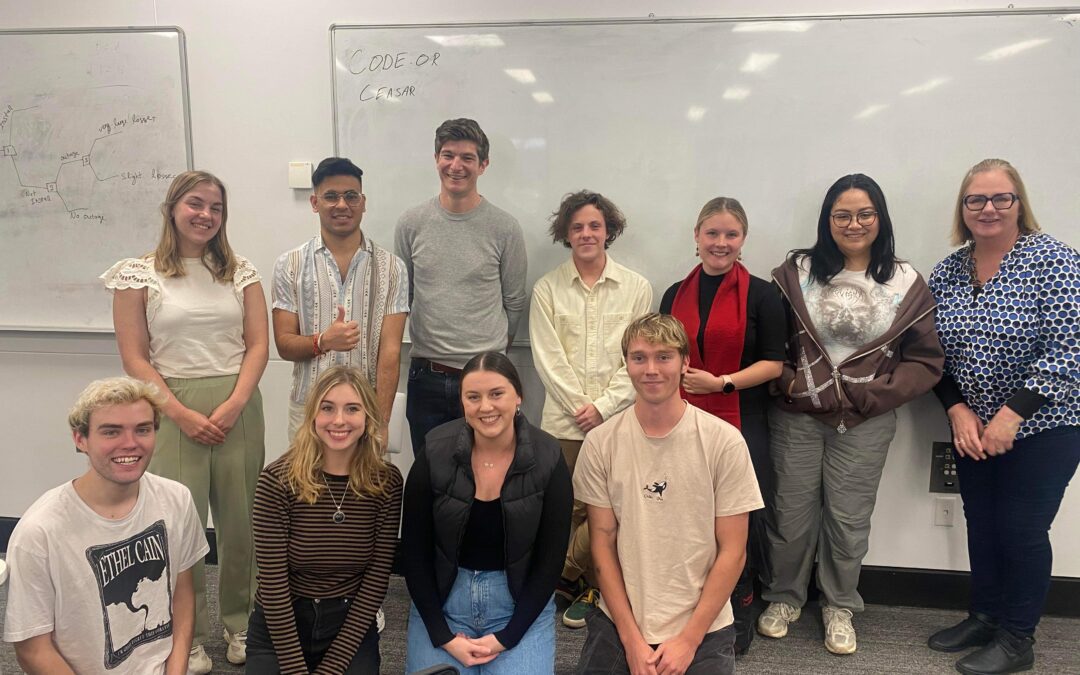Throughout history, generations of people have struggled with conflicts between each other. The Baby Boomers fought the Vietnam War, Generation X stressed about the Cold War, and Millennials witnessed the reality of The War on Terror in The Middle East. But all of these events had a solution. Once the enemy is defeated, life returns to normal.
What happens though when the enemy is ourselves?
University of Wollongong sociologist Dr Jordan McKenzie is exploring this idea, and how the time to talk and act on climate change is now.
“The fact that we have to deal with the idea that we are a part of the problem means that we don’t get to just brush it away,” Dr McKenzie said.
The 2019 bushfires left hundreds of thousands homeless, followed closely by the Queensland floods, the largest recorded flood in centuries.
McKenzie has reflected on his life during the Black Summer, and how those living in areas of risk were encouraged to have a ‘go-bag’ ready by the door.
“I think that something changes when you start having conversations like ‘can we take the dogs or do we have to leave them here?'” he said.
McKenzie explains it’s almost impossible for people to go back to normal after a conversation like that, regardless of whether they have to evacuate or not.
This is where his research comes in.
McKenzie has started a research project that examines how parents in Australia handle anxiety concerning climate change, both personally and within their families. His original interest stems from how political, social and environmental factors affect emotions in society.
“I’ve become really interested in how emotions can be anticipatory… primarily how we might feel in the future (will) shape how we feel in the present,” McKenzie said.
There was a gap about anticipatory emotions within climate change research, so Mckenzie took the opportunity to provide a sociological perspective on climate change anxieties.
“A lot of people who are writing about climate anxiety and parenting are family experts rather than climate change experts,” he said. “Their analysis is kind of one dimensional.”
The project is new, so data is yet to be collected, but it will hopefully bring conclusions for Australian parents on how to discuss climate change anxiety with their families.
“People want to be able to inform and educate their children, but they also don’t want to scare them,” he said.
It was during a discussion of how to collect data when the realities of climate change were brought to the surface for McKenzie.
“When we originally were planning out this grant we were thinking we could talk to people in crisis affected areas, and then we realised… there’s not many people in NSW who aren’t in a crisis affected area.”
Australia has been no stranger to climate disaster, with the bushfires and floods of 2019 and 2020.
“I kind of wonder if Australia, already being such a dry and hot place in general, is maybe a little bit further ahead of what things might look like for the rest of the world,” he said.
“The thing that’s very unique about Australia [is that] climate disasters have just affected basically everybody…It’s been pretty catastrophic.”
Discussing these issues hit close to home for McKenzie, when his three year old son started asking questions about the future of the world.
“Three year olds are amazing… they have this way of just like cutting through sort of grown up bullshit and just asking very honest and confronting questions,” he said.
It’s discussions like these that make talking about climate change so difficult, but yet so real.
After explaining to his son that humans did not kill the dinosaurs, the topic of the Tasmanian tiger came up, and that they too are extinct. Though this time, the extinction of the Tasmanian tiger was our fault.
“He’s at some level, perhaps, even starting to think about, like the idea of human extinction… I’m not looking forward to that conversation,” he said.
The research project has funding for three years and the majority of data collection will be taken in 2024. The project is expected to inform national databases on the adverse effects of climate change, reveal effective management strategies for helping families with climate change, and give Australian parents a voice for their concerns for the future.
A documentary filmmaker will make short videos on the process.
“Previous generations have faced other life-threatening crises,” Dr McKenzie said.
“What’s fundamentally different is that now we are the problem.”
Additional reporting: Lilian Cooper and Corinna Weghs

